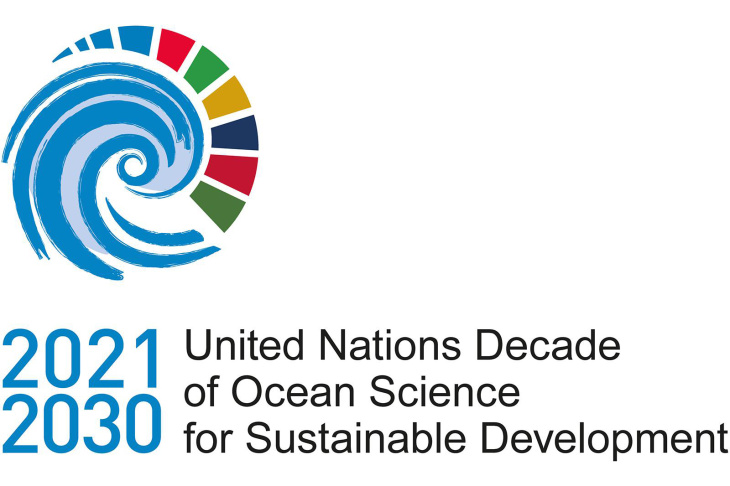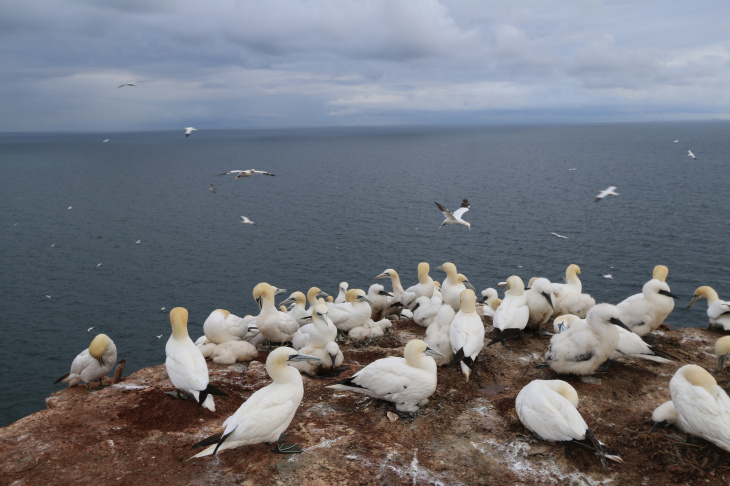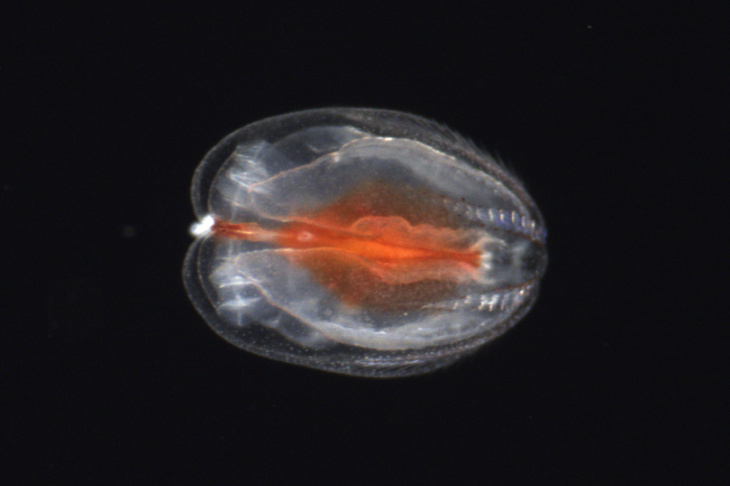Hereon is part of the UN Decade
The UN Decade of Ocean Science for Sustainable Development, which is so important for the future of the oceans, was recently launched. It is also being shaped by scientists from the Helmholtz-Zentrum Hereon: Dr. Holger Brix and Dr. Klas Ove Möller are each involved in one of the more than 60 Decade Actions selected from many applicants. In this way, they can contribute with their research to make the use of the oceans more sustainable.

Official logo of the UN Decade
The ocean is an important part in all life, not only when on vacation. Therefore, the problems of the oceans anchor deep in people's consciousness. From pollution to overfishing - these aspects are moving and depressing. It is therefore so important that the UN Decade of Ocean Science becomes concrete in its search for solutions. The two scientists at the Institute of Coastal Ocean Dynamics Holger Brix and Klas Ove Möller can now actively contribute to it within the framework of the UN Decade. The so-called Decade Actions are supported and implemented by the UN. Holger Brix will help to design an observation and forecasting system for the coastal oceans. Klas Ove Möller is involved in a network exploring the Ocean Twilight Zone. Institute director Burkard Baschek is also chair for the Safe Ocean outcome of the organizing committee for the international launch event.
Understanding the coast

Only a protected sea will be sustainable for both people and animals. Photo: Hereon/ Emma Lefebvre
UNESCO selected CoastPredict (Observing and Predicting the Global Coastal Ocean) from a large number of projects and will support it as a Decade Action for the UN Decade. Nearly 200 researchers were involved in the idea. Their goal: "We want to understand coasts globally to make them predictable in terms of threats and opportunities," says Holger Brix. He and Burkard Baschek helped develop the concept for CoastPredict.
CoastPredict will study the diversity of coasts over the next ten years. It is not just about research and predictions. At the level of the UN Decade, a global framework is being created that links knowledge from all regions of the world. "CoastPredict will make it easier to work holistically and include the interests of all coastal inhabitants," says Brix. It's about a global network of interdisciplinary scientists. As the scientists provide a diverse view of coastal problems and solutions, they recommend concrete measures. One example is the preservation of coastal ecosystems as a food source. In addition, the researchers are planning to support education, training and research locally. Holger Brix is a member of the new CoastPredict steering group chaired by Nadia Pinardi of the University of Bologna.
Exploring the depths

Jellyfish from the Twilight Zone, photographed with an underwater camera system. Photo: Hereon/ Klas Ove Möller
JETZON (Joint Exploration of the Twilight Zone Network) has also been selected. It is a worldwide network of over 15 projects, research programs and scientists - and now also became a Decade Action. Klas Ove Möller is one of them and contributed to the proposal. The main coordinator of JETZON is Adrian Martin from the National Oceanography Centre in Southampton.
JETZON serves as a global focal point for scientists working on the Ocean Twilight Zone. It extends across all oceans, from the poles to the tropics, and is a region characterized by twilight at depths of 200 to 1,000 meters. This zone contains the largest and least exploited fish stocks in the world's oceans and is responsible for recycling of about 80% of organic material. With the increasing resource demands of a growing world population, this zone needs to be better understood. The pressures from deep-sea mining and climate change, for example, weigh heavily. "Since most of the Twilight Zone lies outside national boundaries, it is necessary to study it through a coordinated international team effort, and I am pleased to be a part of it," Möller says. To increase our knowledge of this important and fascinating ecosystem an interdisciplinary approach that combines autonomous and ship-based field research with global biogeochemical and socioeconomic modeling is crucial.
Both, CoastPredict and JETZON seek to understand influences such as climate change and overfishing and their future evolution from the coast to the open ocean. "We invite policymakers to adopt the emerging knowledge and join us in finding new solutions for the future," says institute director Burkard Baschek. Because only a healthy ocean is a sustainable one.
Further Information
Contact
Institute of Coastal Ocean Dynamics
Helmholtz-Zentrum Hereon
Institute of Coastal Ocean Dynamics
Helmholtz-Zentrum Hereon
Communication and Media
Helmholtz-Zentrum Hereon
